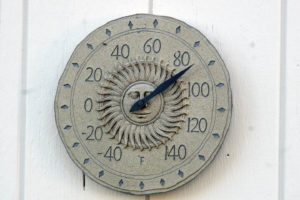No doubt the temperature and the humidity affect all most everyone. When you’re on the job, it’s often impossible to escape the ill effects. So, what happens if the heat causes you to be sick at work? Can you make a workers’ compensation claim? 
Summer months in New Jersey account for many hot days. Meanwhile, several professions labor through sweltering heat on a daily basis. These include:
- Construction trades and extraction workers
- Landscapers
- Utility workers
- Road employees
- Delivery people
- Transportation workers
Meanwhile, you don’t have to work outdoors to suffer from the heat. Unfortunately, many factory and warehouse employees report to sweltering conditions on the job. You may already know the impact of a lack of ventilation if it’s something you endure to make a living. The question remains. In most cases, your company has absolutely no control over rising temperatures. If you get sick at work because of the heat, how can you possibly hold them for blame? You should know that New Jersey workers’ compensation laws do not require your employer to be at fault for on-the-job injuries. As no-fault insurance, the insurance company should provide benefits – provided that there’s sufficient evidence that you suffered a job-related injury or illness. According to NJSA 34:15-7, it comes down to whether your injury or illness arose out of and in the course of your employment. If your employer tries to deny your claim and say it isn’t work-related, you’ll need the help of an experienced workers’ compensation attorney.
Can the Heat Cause You to be Sick at Work?
- Your body temperature itself rises to above 104 degrees.
- You exhibit signs of confusion or agitation.
- You begin to act delirious, have seizures, or fall into a coma.
- Instead of sweating from the heat, your body is dry to the touch.
- Your skin turns red, and the flushed color is not related to sunburn.
- You feel sick to your stomach and/or are vomiting.
- Your breathing and heart rate change.
- You have a throbbing headache.
As you can see, the symptoms of heat exhaustion and heat stroke can cause some confusion. The major difference is that heatstroke holds the potential for permanent damage. According to OSHA, heat-related fatalities have occurred on the job.